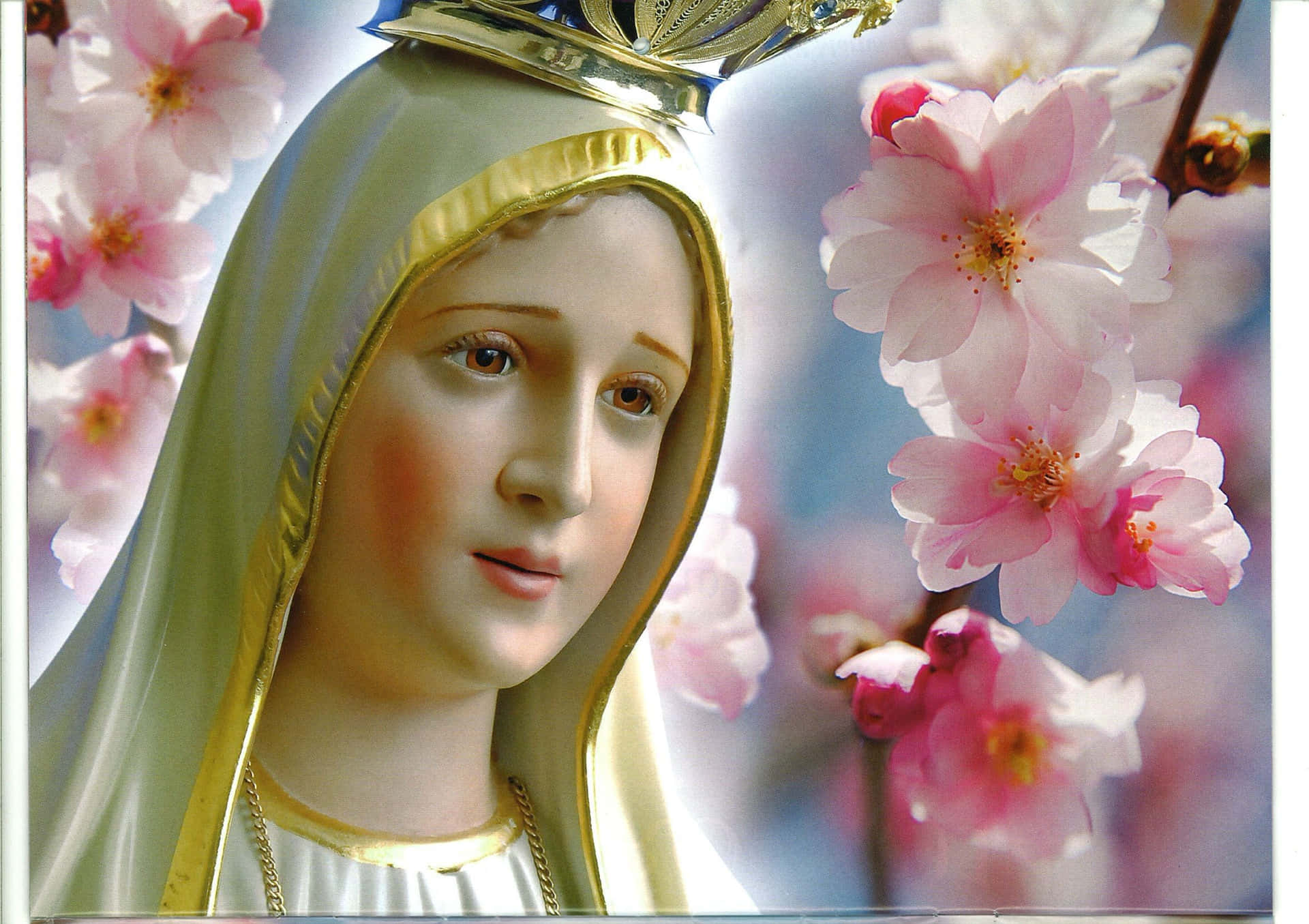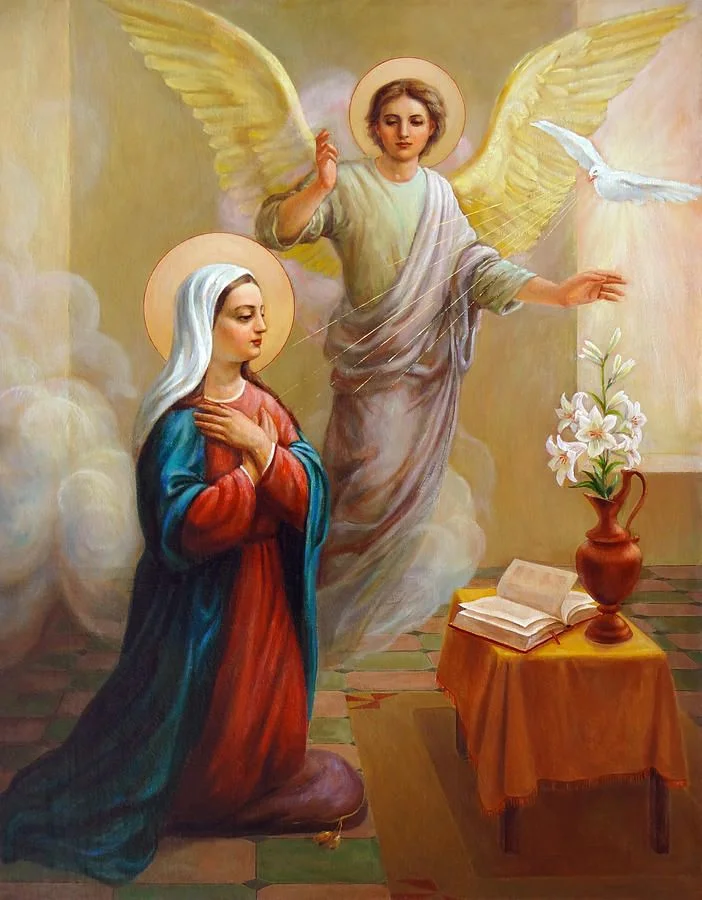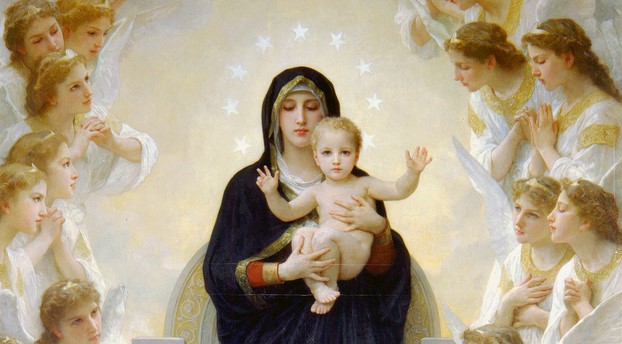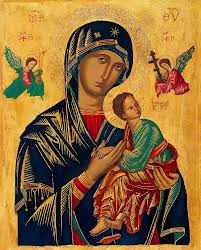Mary, Mother of the Church: A Foundation of Ecclesial Unity
Introduction: Defining Key Concepts
This discourse explores the multifaceted role of Mary, Mother of God, within the Catholic Church, focusing on her significance as a pillar of ecclesial unity. We will examine her theological status, scriptural foundations, and enduring impact on Catholic spirituality and practice. Key concepts to be addressed include Marian theology (the theological study of Mary), ecclesiology (the study of the Church), and the concept of mediation (Mary's role as intercessor between humanity and God). We will analyze her influence through established theological frameworks and historical precedents, exploring how these concepts manifest in practical expressions of Catholic faith.
Mary's Theological Significance and Scriptural Basis
The Catholic understanding of Mary's role is deeply rooted in scripture and theological tradition. The Annunciation (Luke 1:26-38), where the angel Gabriel announces her divine conception of Jesus, establishes her unique relationship with God. The Magnificat (Luke 1:46-55), Mary's canticle of praise, reveals her profound faith and humility. These passages, along with Mary's presence at the Cross (John 19:25-27) and the early Church's witness, form the bedrock of Marian theology. Her role transcends a mere maternal relationship; she is understood as the Theotokos (God-bearer), a title signifying her pivotal role in the Incarnation. This is further understood through the lens of Christocentricity, where Mary's significance is inextricably linked to her Son and His salvific mission.
Mary as "Mother of the Church": A Theological and Pastoral Function
The title "Mother of the Church," formally declared by Pope Paul VI in 1964, encapsulates Mary's spiritual motherhood of all believers. This extends beyond a biological motherhood; it signifies her role as a spiritual guide and intercessor for the Church. This concept draws upon the maternal imagery found throughout scripture and tradition, emphasizing Mary's compassionate care for the faithful. Theological reflections on the Immaculate Conception and the Assumption further highlight her unique status within God's plan of salvation, placing her as a model of faith, obedience, and grace. From a pastoral perspective, this title offers believers comfort and guidance, highlighting the Church's nurturing and protective character.
Mary's Role in Fostering Ecclesial Unity
Mary's influence transcends denominational boundaries, acting as a unifying force for many Christians. Her image, often depicted with a gentle and compassionate demeanor, inspires devotion and hope. The rosary, a popular Marian devotion, exemplifies this unity; its repetitive prayers foster contemplation and a sense of shared faith. The numerous Marian apparitions throughout history, such as Our Lady of Guadalupe and Fatima, continue to inspire faith and devotion, illustrating Mary's ongoing presence and guidance. These events, while subject to varying interpretations, demonstrate a shared experience of faith, transcending cultural and geographical boundaries, bolstering the sense of a unified Church. The application of social identity theory helps explain this; Mary’s image acts as a shared symbol, reinforcing group identity and cohesion among Catholics worldwide.
Marian Devotion: Practices and Theological Implications
Marian devotion, expressed through practices like praying the Rosary, venerating Marian images, and observing Marian feasts, serves as a vital aspect of Catholic spirituality. The Catechism of the Catholic Church affirms the legitimacy and importance of this devotion, emphasizing its role in fostering spiritual growth and deepening one's relationship with Christ. This devotion isn't viewed as an end in itself but as a means to foster a deeper connection with Christ. The concept of "spiritual motherhood" allows for this nuanced understanding of Marian devotion as a path towards union with Christ, with Mary acting as a guide and intercessor in this spiritual journey. From a sociological perspective, these devotions reinforce communal bonds, strengthen social networks within the Church, and enhance spiritual formation.
Mary as a Model of Faith and Obedience
Mary's "fiat," her unwavering "yes" to God's will, serves as a profound example of faith and obedience. Her complete surrender to God's plan underscores the importance of humility and trust in divine providence. This resonates deeply with the Catholic understanding of discipleship, emphasizing the importance of following God's guidance even amidst uncertainty or difficulty. Examining Mary's life through the lens of virtue ethics highlights her unwavering commitment to virtues such as faith, hope, charity, and obedience—qualities essential for spiritual growth and for building a strong, unified Church. Her example inspires believers to emulate her virtues, fostering a spirit of dedication and service within the ecclesial community.
Conclusion and Recommendations
Mary's role as Mother of the Church is not merely a historical or theological construct; it is a living reality within the Catholic faith. Her influence on believers continues to foster unity, inspire devotion, and guide spiritual growth. Further research could explore the comparative analysis of Marian devotion across different Catholic cultures and its influence on social cohesion within local Church communities. The evolving understanding of gender roles within the Church could also provide further insight into the evolving interpretation of Mary's role as spiritual mother. Promoting a deeper understanding of Marian theology within contemporary contexts and encouraging participation in Marian devotions are key recommendations to strengthen ecclesial unity and foster deeper spiritual connections among believers.
Reader Pool:
Considering the multifaceted nature of Mary's influence, how might contemporary theological approaches refine our understanding of her role in promoting not only unity but also social justice and global solidarity within the Church?





